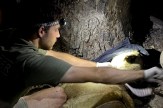At CGI U, President Aoun leads discussion on future of higher education
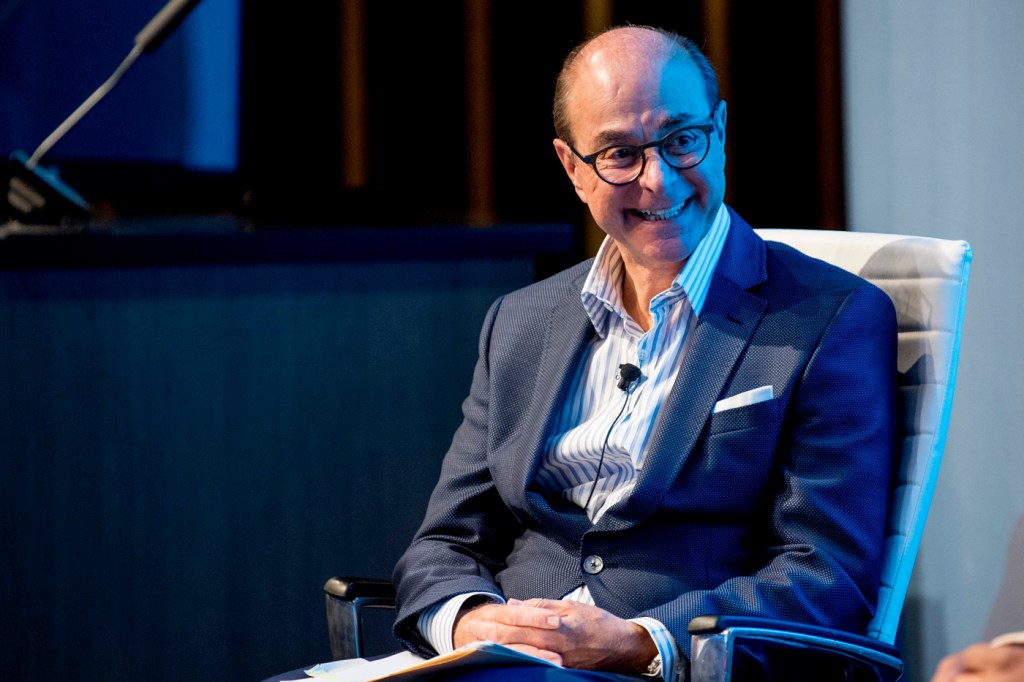
D’Wayne Edwards, founder of PENSOLE Footwear Design Academy, grew up in a rough neighborhood of Inglewood, California. He never saw college as an option. But he did have a gift—the ability to draw anything he could see. As a kid, he visited a footwear design company and left some of his drawings in its suggestion box.
“My suggestion was they hire me as a footwear designer. And they did,” Edwards said. He shared that story on Saturday while serving on a panel discussion titled, “Skills vs. Degrees,” which was moderated by Northeastern University President Joseph E. Aoun. The session was part of the 10th annual Clinton Global Initiative University, hosted this year by Northeastern. CGI U 2017 convened more than 1,200 students from 90 countries and 250 colleges to address challenges in education, poverty alleviation, public health, and other fields.
Many Americans today wonder whether traditional post-secondary education is the right path for them, or assume, like Edwards did, that college is out of reach altogether. There’s also the question of a changing workforce—one in which many jobs will be replaced by robots and artificial intelligence. What avenues should young people pursue to increase their chances of success? What if they don’t have the luxury of worrying about education at all?
To tackle these questions, Edwards joined Andrew McAfee, principal research scientist at the MIT Sloan School of Management, and Gerald Chertavian, founder and CEO of Year Up, an urban youth development organization. Each are focused on helping young people achieve upward mobility.
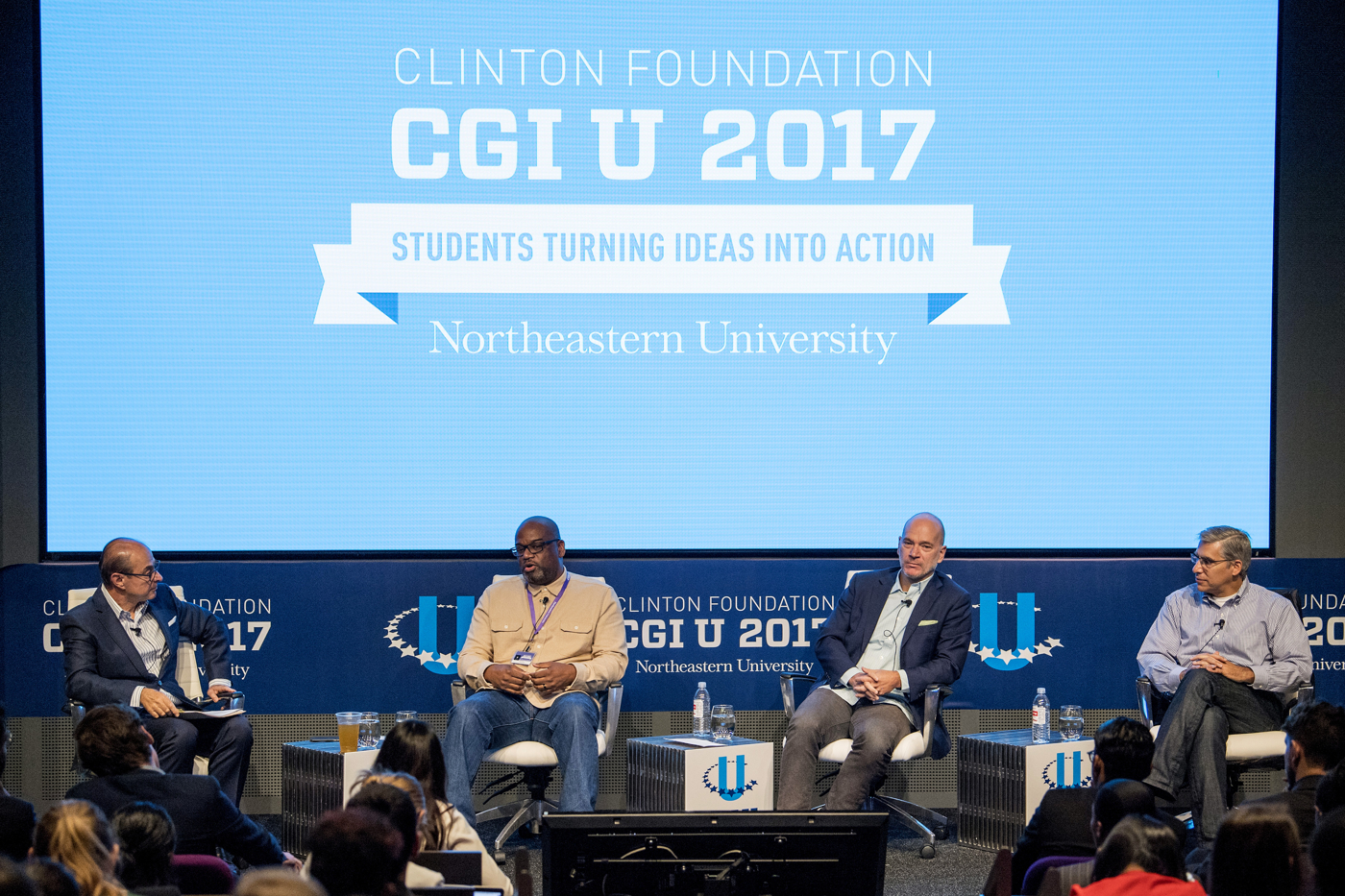
President Aoun joins D’Wayne Edwards, founder of PENSOLE Footwear Design Academy, Andrew McAfee, principal research scientist at the MIT Sloan School of Management, and Gerald Chertavian, founder and CEO of Year Up, an urban youth development organization. Photo by Billie Weiss for/Northeastern University.
At Northeastern, Aoun said students learn how to thrive in a rapidly evolving professional environment through experiential learning—such as with co-op programs, the cornerstone of the university’s learning model.
At PENSOLE Footwear Design Academy, students can learn the ins-and-outs of footwear design for free while receiving industry mentorship and exposure to top brands. It doesn’t lead to a four-year degree, but it’s an innovative program that provides a clear path to a desirable design career.
“I don’t want other kids like me to get bypassed,” Edwards said.
Chertavian is also focused on providing an affordable education alternative to underserved youth. At Year Up, young adults interested in working in technology industries receive six months of intensive training, are placed in a six-month internship, and then land an entry-level job with an average annual salary of $40,000.
A theme throughout the discussion was the need to empower low-income youth who might not attend a traditional four-year college. When a significant sector of the population is kept from entering the workforce because of their race, income, or zip code, “We all stand to lose,” Chertavian said.
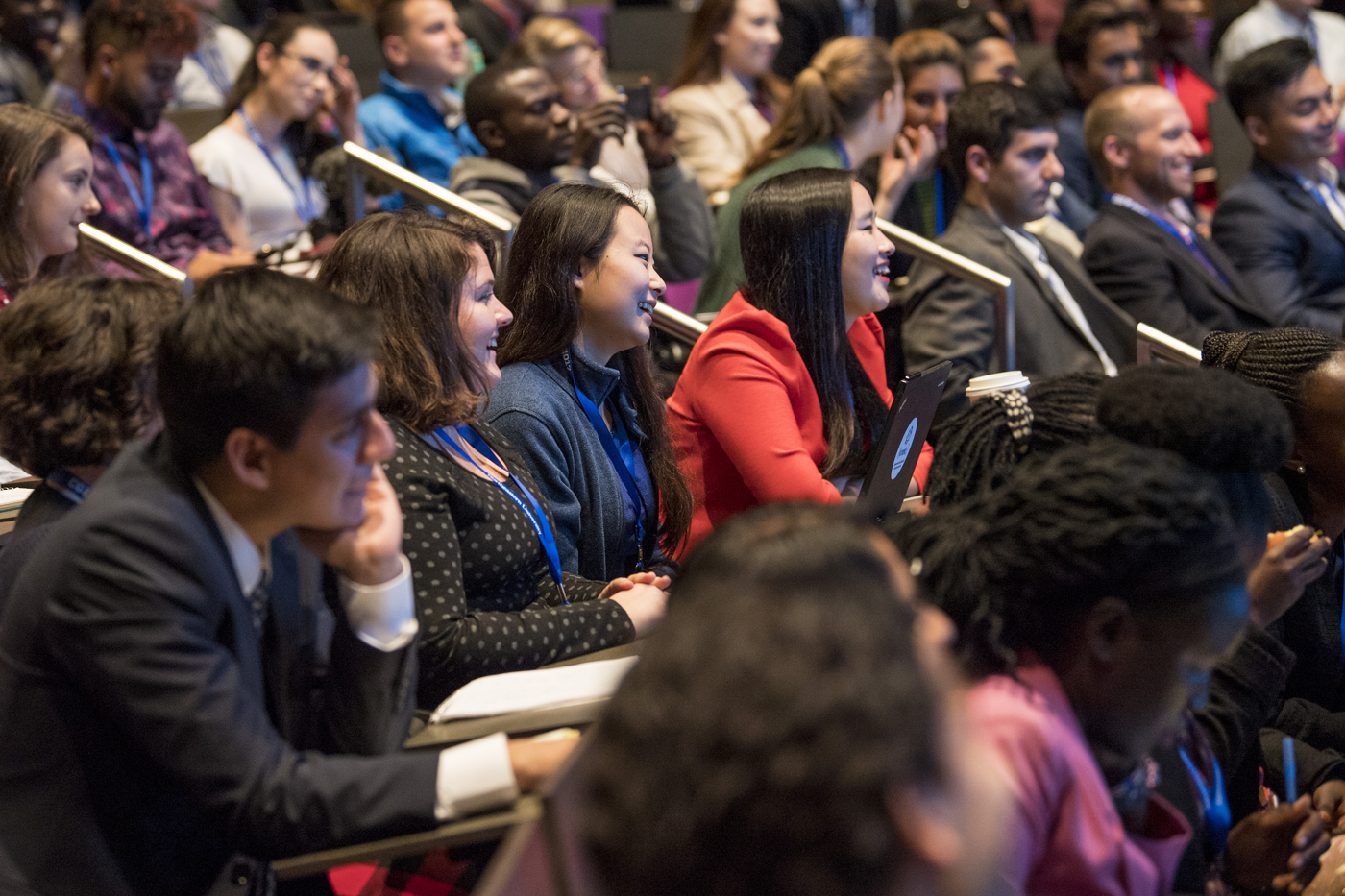
“We are a hack to a broken labor market in the United States,” Chertavian said, referring to programs like his and Edward’s. Photo by Billie Weiss for/Northeastern University.
“We are a hack to a broken labor market in the United States,” Chertavian said, referring to programs like his and Edward’s.
Part of the issue, McAfee said, is that current technology is changing at “unprecedented speeds,” and it is not evenly distributed. For the first time, many people feel their economic future—and that of their children—won’t improve.
To prepare for a rapidly changing workforce, Aoun emphasized the need for students of all ages to hone skills robots can’t replace, such as entrepreneurship, cultural agility and creativity. He said that these talents, which he collectively refers to as “human literacy,” must be integrated with technological and data literacies. This new curriculum is outlined in Aoun’s book, Robot Proof: Higher Education in the Age of Artificial Intelligence.
“You’re in the middle of an enormous change, and you will be leading it,” Aoun said.
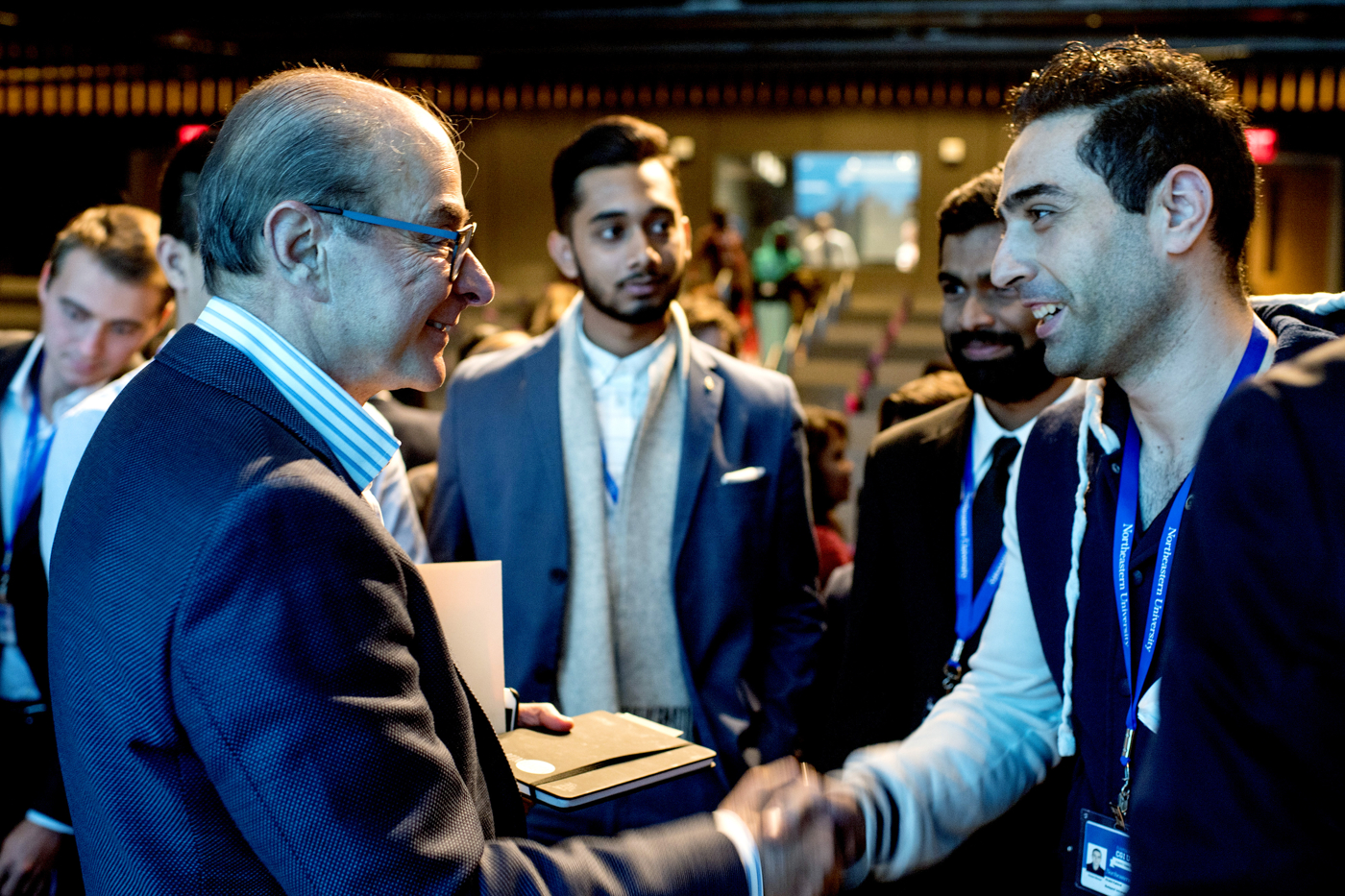
“You’re in the middle of an enormous change, and you will be leading it,” Aoun said. Photo by Billie Weiss for/Northeastern University.
The panelists all agreed the world is changing, and higher education needs to change with it. But they each had encouraging things to say to an audience of some of the most ambitious students in the world. Edwards encouraged young people to “be the inspiration that you’re seeking.”
“We learn form each other a lot more than from an instructor or school. We feed off each other. The problem is we don’t give as much as we should,” Edwards said.
Chertavian echoed the sentiment. “Go to bed tonight and think really big. Get up in the morning and think way bigger,” he said.
